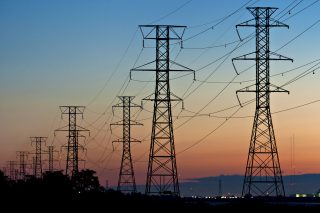Based on the provisions of the Energy Act 2019 which was approved by President Uhuru Kenyatta in March, Kenya is set to introduce a new investment system in its energy sector. Projects will be predetermined by the government based on their relevance and then awarded to investors through auction.
The new policy is different from the current system where investors come up with project proposals, sign Power Purchase Agreements (PPAs) with the national energy firm, Kenya Power, and then implement the project.
According to the Director for Renewable Energy in the Energy Ministry, Benson Mwakina, the new system is based on power demand in the country and it is in the final stages of formulation. “The system involves establishing a demand-supply equilibrium and identifying projects on a need basis before inviting potential investors to bid for their development in an open auction,” Mwakina told an energy forum in Nairobi this week.
The proposed policy is an indication that Kenya wants to focus on developing renewable energy, the East African reports. And the provision of clean renewable energy in the law opens up new opportunities, especially for private-sector players, Vice Chairman for the Energy Board of the Kenya Private Sector Association, George Aluru, said.
Moreover, opting for the auction system is based on the potential of the system to achieve deployment in a cost-efficient and well-regulated manner, as against the costly power-purchase agreements.
An example of the costly nature of PPAs is the planned Lamu coal power plant that costs $2 billion. The project, which was approved by the government in 2015 after being reportedly lobbied, has been denounced by the Institute for Energy Economics and Financial Analysis (IEFA).
“Building the proposed Lamu coal plant in Kenya, a three-unit, 981 MW facility, would be a costly error for the country, locking it into a 25-year PPA that would force electricity consumers to pay more than $9 billion, even if Lamu doesn’t generate any power, as long as it is available for dispatch,” the United States-based firm explained.
It further revealed that the existing PPA would force Kenya to pay at least $360 million in capacity charges every year, even if no power is generated at the plant. Also, the coal plant will substantially add to the excess power capacity in Kenya, pushing it to more than 1,300MW if it commences operation in 2024, which consumers must pay for without using.
Energy auctions have become a popular policy tool in recent years. Data from the International Renewable Energy Agency (IREA) shows that the number of countries that have adopted them rose to over 67 by early 2017, from six in 2005. South Africa and Morocco are among the countries that have adopted the auction system in Africa.








